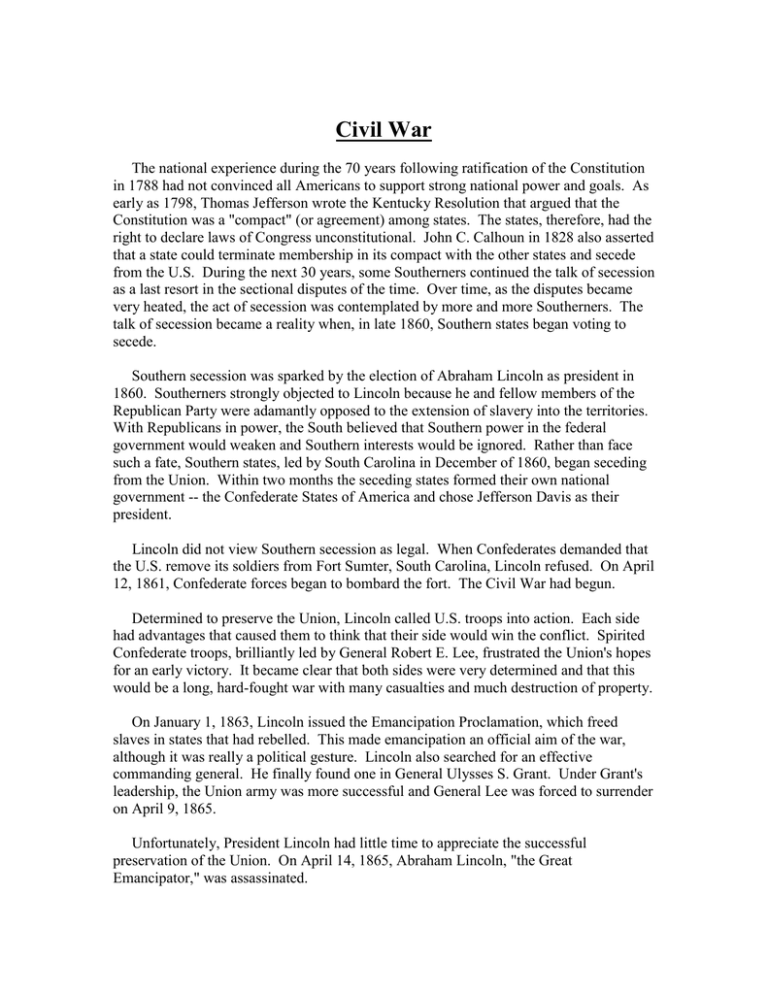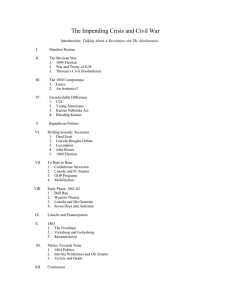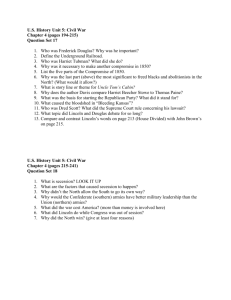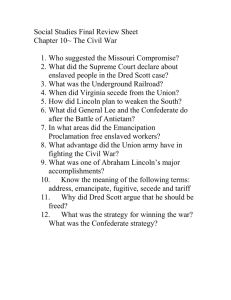Civil War
advertisement

Civil War The national experience during the 70 years following ratification of the Constitution in 1788 had not convinced all Americans to support strong national power and goals. As early as 1798, Thomas Jefferson wrote the Kentucky Resolution that argued that the Constitution was a "compact" (or agreement) among states. The states, therefore, had the right to declare laws of Congress unconstitutional. John C. Calhoun in 1828 also asserted that a state could terminate membership in its compact with the other states and secede from the U.S. During the next 30 years, some Southerners continued the talk of secession as a last resort in the sectional disputes of the time. Over time, as the disputes became very heated, the act of secession was contemplated by more and more Southerners. The talk of secession became a reality when, in late 1860, Southern states began voting to secede. Southern secession was sparked by the election of Abraham Lincoln as president in 1860. Southerners strongly objected to Lincoln because he and fellow members of the Republican Party were adamantly opposed to the extension of slavery into the territories. With Republicans in power, the South believed that Southern power in the federal government would weaken and Southern interests would be ignored. Rather than face such a fate, Southern states, led by South Carolina in December of 1860, began seceding from the Union. Within two months the seceding states formed their own national government -- the Confederate States of America and chose Jefferson Davis as their president. Lincoln did not view Southern secession as legal. When Confederates demanded that the U.S. remove its soldiers from Fort Sumter, South Carolina, Lincoln refused. On April 12, 1861, Confederate forces began to bombard the fort. The Civil War had begun. Determined to preserve the Union, Lincoln called U.S. troops into action. Each side had advantages that caused them to think that their side would win the conflict. Spirited Confederate troops, brilliantly led by General Robert E. Lee, frustrated the Union's hopes for an early victory. It became clear that both sides were very determined and that this would be a long, hard-fought war with many casualties and much destruction of property. On January 1, 1863, Lincoln issued the Emancipation Proclamation, which freed slaves in states that had rebelled. This made emancipation an official aim of the war, although it was really a political gesture. Lincoln also searched for an effective commanding general. He finally found one in General Ulysses S. Grant. Under Grant's leadership, the Union army was more successful and General Lee was forced to surrender on April 9, 1865. Unfortunately, President Lincoln had little time to appreciate the successful preservation of the Union. On April 14, 1865, Abraham Lincoln, "the Great Emancipator," was assassinated.




